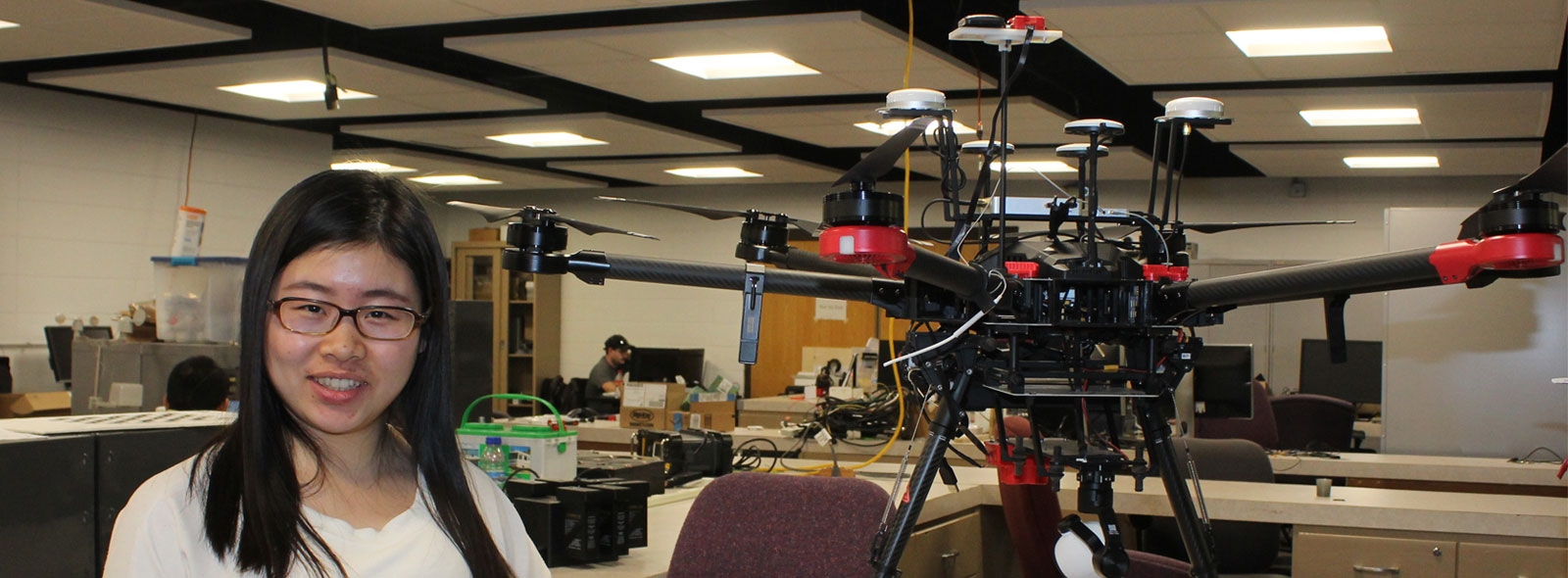Jiating Li
Master's student, Agricultural and Biological Systems Engineering
Hangzhou, China
Advisor: Dr. Yeyin Shi
Expected Graduation: Fall 2019
When master’s student Jiating Li speaks about her home country of China, she says it differs from the United States in that Chinese graduate students commonly go to work in their labs at 8 or 9 a.m. every day and return home around 10 p.m.
“Here you have weekends,” Li says with a laugh. “In China, you don’t have weekends.”
She then corrects herself by saying the Chinese do have weekends, but students are not able to socialize much on them because they have so much work to do.
“You get used to living that way,” Li says. “You just get up and go to the lab.”
It was something about her life she hoped to change when coming to the United States. She applied to six of the top agricultural engineering colleges in the United States, hoping that she would be able to take part in cutting-edge research and still have a social life.
She found the right balance at the University of Nebraska-Lincoln.
Li works with Yeyin Shi, Assistant Professor in Biological Systems Engineering, on crop phenotyping using digital image processing, data analysis and machine learning. Every organism has phenotypes, which are not genes but what those genes produce. For example, a woman may have genes for both brown eyes and blue eyes, but the color of eyes she ends up having is her phenotype.
Li and Shi use unmanned aerial systems (UAS) to take images of corn, sorghum and wheat and then extract useful information from those images. For her master’s project, Li would like to use phenotypes to predict wheat disease and estimate wheat production by UAS.
Li enjoys solving problems through her research involving phenotypes and UAS.
“When I do the data analysis, if I find some new solution or I find some unexpected correlation among this data, I feel excited,” Li says.
She feels equally enthusiastic about having a social life.
“The big thing for me is to work here and to have some life,” Li says. “I think I already have that.”
She has joined the local Toastmasters Club, takes part in the International Student Fellowship Club and exercises at the recreation center on East Campus. She has made friends through these activities and through the Biological Systems Engineering Department.
“People here are very kind,” Li says. “They usually invite you to some activities. And everyone you see is like a new friend. It’s good. I have a lot of friends here.”
She said this friendliness and kindness to strangers also differs from life in China.
“Whenever you meet someone here, they will smile at you, and even if you take the bus, you will say thank you. You will say hi. That seldom happens in China,” Li says. “You just squeeze on the bus.”
Lincoln is quieter and less crowded than the places she lived in China, but the kindness of the people has helped her adapt and fit in.
“I find that when you are grateful and ready to help someone, you will feel very happy,” Li says.
She hopes to continue here for her doctoral degree and says other prospective students from China and other well-populated countries can adjust better to Lincoln, Nebraska, by embracing the small-town values and lifestyles.
“It’s small here. It’s quiet,” Li says. “So, you need to learn in a place that’s quiet, not crowded like a big city. You will focus more on your research but try to spend time to enjoy life. That is better. It’s a good place to do research, but there is enough social stuff to do too.”
